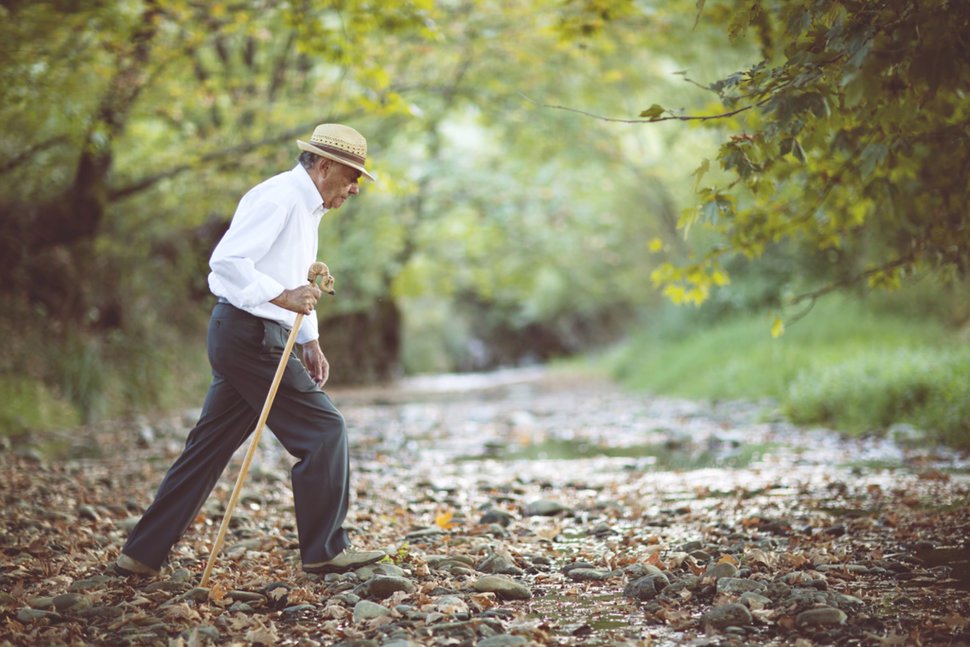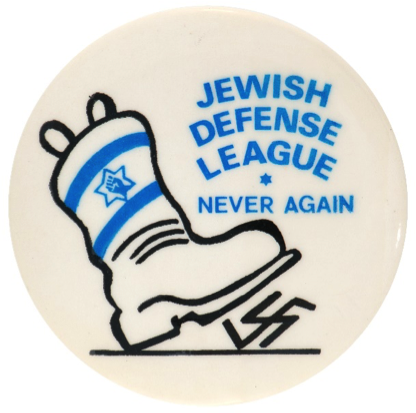"Beyond Words" is a newly-published seven volume collection of Rabbi Meir Kahane's writings from 1960 – 1990 that originally appeared in The Jewish Press, other serial publications, and his privately-published works. "Beyond Words" also includes a number of extra features: Chronology of Rabbi Kahane's life. "Beyond Words" now can be bought at Amazon.com. On the search line, type… Beyond Words Kahane. Beyond Words Selected Writings of Rabbi Meir Kahane, 1960-1990 Volume7 A JEWISH HEART "There is a time to love, and a time to hate." Ecclesiastes 3:1,8 "There is a time to live in time of peace and a time to hate in time of war . . . there is a time to kill in time of war and a time to heal in time of peace." (Vayikra Rabbah 3) The total contradiction between so much of Judaism and Western, foreign cultural Hellenism could not be more evident than in the case of the heart transplant last November in Israel. Then, the heart of a Jewish soldier, murdered from an ambush in the Gaza Strip, was placed in the chest of an Arab "Palestinian," Hanna Haddad. And how the non-Jewish world exploded in joy! And how the perversion of authentic Jewish values and concepts came crashing down in the sickly need to win favor in the eyes of the nations and to feel the comforting warmth of self-righteousness. And how all the anti-racists privately and not so privately purred with pleasure at the "Jewish heart" that is so "unique" and that climbs mountainous deeds of ethics and morality that no one else could. Indeed. Not only have Jews lost every sense of authentic Judaism, falling prey and victim to all the foreign and gentilized misvalues of Hellenism, but thanks to the debilitating effects of an abnormal exile, they have lost all sense of normality, too. Consider: The widow of the murdered soldier blesses the act. Yossi Sarid writes an article that begins: "How is it possible not to write about Ze'ev Traum's heart, transplanted into the chest of Hanna Haddad – may he live a long life . . . " "We do not have a Jewish heart and they do not have an Arab heart but a personal human heart, and if we follow our embroiled nationalism we harden our heart, we make it as hard as Pharaoh's heart." And Sarid concludes: "Those who have the heart saved one soul and filled an entire world with hope." There were pages and pages and speeches and speeches of similar paeans of praise for the humanity shown by Jews. And the story became the very symbol of the "Jewish heart" that transcends enmity and hatred and war, that saves the life of a man who hates the Jewish state and dreams of its destruction. No matter! The Jew is not supposed to hate the enemy; he is above that. So the conventional wisdom of the gentilized Jews of Hellenism. It is hardly new. In Rosh HaShana messages to the Israeli soldiers, both Defense Minister Rabin and Chief-of-Staff Shomron – men deeply rooted in ignorance of Judaism – sent messages of profound Hellenism and madness to the Jewish soldiers facing an enemy filled with venomous hate for the Jews and deep passion for the day when the Jewish state will cease to exist. Rabin said: "Alongside your obligation to crush all attempted violence, you must always remember that the people against whom you struggle today are the same people that in a few months or years we will wish to live with in peace, to be good neighbors." One struggles to recall a similar message to the Allied troops in World War II concerning the Nazi armies . . . And the Chief-of-Staff told his troops" "In the difficult and complex daily work, we have succeeded, except for minor exceptions, in preserving the basic values and ethics of the I.D.F." Meanwhile, of course, that by giving the soldiers orders that tied their hands; the killing of the Arab enemy was kept to a minimum while guaranteeing the continuation of the Arab rioting. And when General Yitzhak Mordechai concluded his term as commander of the southern sector (that included Gaza), he said: "Personally and as a commander, I wish to express my sorrow over every one in the area who was killed or wounded from the (I.D.F.) activities that were necessary." No, there is nothing to say. But to return to the "Jewish heart," and to ponder the depths – the sheer depths! – of Jewish psychosis. On the day of the funeral of the soldier who was murdered and whose heart was given to a member of the nation that murdered him, a Jewish contractor named Yehuda Yisrael told how, one year earlier, in December 1988, his brother lay dying, attached to a machine. The family had 24 hours in which to find an available heart. And this is what Yehuda Yisrael told Ma'ariv (Nov. 11, 1989): "At that time in the (Arab East Jerusalem Hospital) Al Mukassed, there were two young Arabs wounded in the intifada and they were already clinically brain dead. We contacted the Arab doctor in an attempt to have him get us a heart, but he refused. When we saw that it was not working, we offered a great deal of money . . . . "The heart was never given and the brother died. But there is more to the story. Yehuda Yisrael, whose brother died because Arabs would not give a heart to the Jewish enemy, continues: "I am happy that Hanna Haddad found a Jewish heart donor. It is a humanitarian gesture. It is good that the world sees Jews prepared to contribute a heart to the Arabs, too, even in these sad times. The fact that they would not give a heart to my brother only proves that we are more humane than they . . . . "Or perhaps . . . And as a final point in this descent into the Jewish snakepit of insanity, the same article by Yossi Sarid described how he had been asked to find a heart for the same Jew (presumably he was asked because he is such a good friend of the Arabs). Sarid pleaded with his Arab friends but they would not give the heart. As Sarid quotes the Arabs: "Those killed in the intifada are martyrs, martyrs of the entire Palestinian nation, and their heart already belongs to it . . . ." (And in addition, what normal Arab would give a heart to save the life of a Jew, his deadly enemy who took his land from him?) The tragedy of our times is the loss of Divine Jewish values, one of which is the obligation to hate evil; to hate the enemy. We have – thanks to the gentilized values that have swallowed us up – lost our sense of indignation against evil, forgotten to hate it with a passion. And because of that, good people die even as we allow the evil ones to live, flourish and kill them. Hanna Haddad, the "Palestinian" is part of a nation that wishes to destroy Israel and commit horrors on its Jews. He sees the Jews as thieves, as robbers who stole "Palestine" from his people. He sees the Israeli soldiers as oppressors, and he sees Jerusalem, where he lives, as his city, just as he sees Jaffa, Haifa, Ramla, Lydda, Acre, the Galilee and the Negev. He supports the intifada; he wishes the "fighters" success; he takes pride in the rocks and firebombs thrown by the brave young "Palestinians." And Jews give him a heart to save his life, a heart taken from a Jewish soldier murdered by Hanna Haddad's brothers. And Jews cheer and weep tears of happiness over this humane act that only proves that a "Jewish heart" is better than the hard Arab one . . . We are mad. Would anyone dream of doing such a thing for a German during World War II? Of taking the heart of an American soldier from Sioux City killed in battle by Germans and giving it to a German to save his life? No American or Frenchman or Englishman or Russian or anyone remotely normal would have considered it! Only the Jew, in pathetic and deeply disturbed need to win the love of the Arabs and the world, does it and attempts to cloak his insanity in "Judaism" and "Jewish values." Not only are we mad, but un-Jewish, gentilized, Hellenized perverters of the authentic Jewish Idea and halachic. To hate the enemy is a mitzvah, for nothing less than that will give us the understanding that evil must be fought to the end, and nothing less than that will give us the strength and confidence that we are right and that our war is just. And when the Rabbis speak of "a time for war and a time to hate" – what do the gentilized Hellenists of our time think they mean? And what are the voices of the Moderdox from the West Side and Beverly Hills to tell them? To tell themselves? "You who love the L-rd, hate evil!" That is the injunction of King David, the sweet singer of Israel, in Psalms 97:10. And in the words of Ibn Ezra (ibid.): "the L-rd is judge, therefore you who love Him, hate every man of evil and be not afraid of them, for the L-rd alone preserves His pious." And again, David in Psalms (139:20-22): "They speak against You wickedly and Your enemies take Your Name in vain. Do I not hate, O L-rd, those who hate You? And do I not contend with those who rise up against You? I hate them with the utmost hatred; I regard them as my own enemies." There is a time for war; there is a time for hatred. And at such a time it is a mitzvah to hate, a mitzvah to go to war, and the one who refuses – violates the mitzvah, abhors G-d who created morality. "When you go to war against your enemy . . . (Deuteronomy 20:1) Why does it say 'your enemy'? [since obviously one goes to war against an enemy and not a friend]. Said the All Mighty: 'Go against them as enemies! Just as they do not have mercy upon you, so do not have mercy on them'" (Tanchuma, Shoftim 15). That is Judaism. Do not be "better" than they, since in the end you will not be better but deader. And certainly do not be "better" than the All Mighty, who commanded you to be cruel and merciless against those who rise up against you and against G-d, "for whoever rises up against Israel is as one who rises up against the Holy One, Blessed be He" (Mechilta, B'shalach). And the Sifri (Shoftim 192): "Against your enemies [you go to war] and not against your brothers, neither Yehuda against Shimon nor Shimon against Yehuda who, if you fell into their hands, would have mercy on you . . . but against your enemies you go to war, who would not have mercy on you." And Eyleh ha'Dvarim Zuta: You go to war against your enemies. If you have mercy on them, they will then go to war against you. It is similar to a shepherd who, while tending his sheep in a forest, found a baby wolf. He had pity on it and nurtured it. His employer saw it and said: Kill it; do not have pity on it lest it be a danger to the sheep. But he did not listen and so when the wolf grew it would see a sheep and kill it, a goat and eat it. Said the employer: Did I not tell you not to have pity on it? So did Moses say: 'But if you do not drive out the inhabitants of the Land before you, then those whom you will allow to remain of them will be thorns in your eyes . . .' (Numbers 33:55)." That is Judaism. That is authentic Judaism. And true Judaism looks upon every member of an enemy nation as an enemy, unless he proves that he is not. Yes, there is collective punishment in Judaism. Written January 1990 | 




